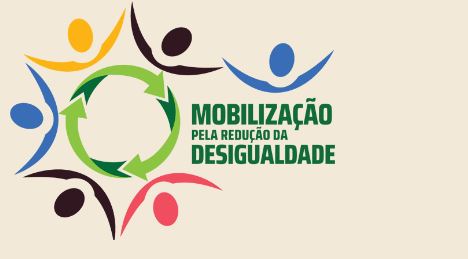ABES campaign supports socio-digital inclusion projects through reverse logistics of replaced electrical and electronic equipment; initiative contributes to 9 of the 17 UN Global Compact Sustainable Development Goals

Globo is the new partner of “Mobilization for the Reduction of Inequality“, campaign launched by ABES – Brazilian Association of Software Companies, in partnership with ReUrbi and Observatório do Terceira Setor, and with the support of Weber Shandwick. The company redirected about 50 tons of electronic equipment that are no longer used. In the 2022 cycle, the financial resources generated with the equipment made it possible to donate 140 notebooks that are contributing to the training of 420 young people and adults from the RECODE PRO Project – NGO, which has been dedicated to digital training and empowerment for over 27 years of young people in situations of social vulnerability. The goal is to train students in Logic of Programming in 12 states and 39 cities in Brazil. PrograMaria – the social impact business of training and engaging women in technology supported by Globo since 2020 – also benefited from the action, receiving the donation of eight machines.
With this partnership, Globo reinforces nine of the 17 Sustainable Development Goals (SDGs) of the UN Global Compact – the largest sustainability initiative in the world –, of which it became a signatory: promoting digital inclusion and quality education. With the motto making a difference is every day, Globo has been implementing, among other fronts, good environmental management practices to reduce the use of natural resources, mitigate the production of waste, in addition to working to reduce its greenhouse gas emissions. greenhouse, which made the company, since 2019, zero carbon.
This is all in line with the fact that Globo aligns its business strategy with the ESG pillars (Environmental, Social and Governance – in Portuguese, Environmental, Social and Governance). Last year, the company launched Jornada ESG – the first sustainability report in accordance with the guidelines of the GRI (Global Reporting Initiative) – and also became a signatory to the UN Global Compact, the largest corporate sustainability initiative in the world. The company's ESG approach is based on six commitments, which address the most relevant topics for its stakeholders and which have a direct impact on the business.
Reverse logistics at no cost and with governance
ABES ensures, in a free, simple and easy way, that companies, regardless of their size, can adhere to the best socio-environmental governance practices, aligned with the UN Global Compact. ReUrbi, in turn, guarantees companies that dispose of their IT and Telecom equipment the reverse logistics process in accordance with the Environmental Legislation and the correct destination of products in disuse, avoiding impact on the environment and generating resources for social projects and of sociodigital qualification.
Altogether, there are already more than 130 Social Projects attended throughout Brazil and maintained by the ReUrbi Institute. “Companies participating in the action have the benefit of exemption from the costs of logistics and certification of disposals, receive legal documentation in accordance with Environmental Legislation and a Socio-environmental Impact Report (RIA) with information on environmental, economic and social impact for use in its Sustainability and Social Responsibility Reports. Upon receiving the economic results of the disposals, they can indicate social projects that will receive the return of the resources generated”, explains Ronaldo Stabile, CEO of ReUrbi.
Business and environmental sustainability
Mobilization has as its target audience all companies in the national territory, ABES members or not, that have ICT equipment to discard and that are interested in participating in this movement of positive impact on the environment, always complying with ESG practices (Environment , Social and Governance).
“Since it was launched, in 2021, the Mobilization for the Reduction of Inequality has avoided the impact of 169 tons of greenhouse gases and 1,053 kg of toxic metals on the environment through the proper recycling of 89.36 tons of obsolete equipment from ICT, contributing to 8 of the 17 Sustainable Development Goals of the UN Global Compact, of which ABES is a signatory. With the resources obtained from recycling, 4,393 people were impacted through social projects. Counting on Globo's participation was essential to further increase this positive impact on society”, says Rodolfo Fücher, chairman of the board of ABES and creator of the campaign.
Companies that have electronic IT equipment that want to contribute to the environment and invest in social projects must follow the instructions on the Mobilization. Entities that have a social project aligned with the purpose of the campaign can apply to receive funds by contacting the Third Sector Observatory: contato@observatorio3setor.org.br.













